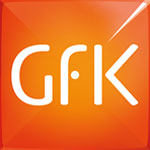Germany: Father Christmas shops online

With an average amount of €241 set aside for Christmas presents, just €4 lower than in the previous year, there will still be plenty of gifts under the tree in 2011. Retailers are to expect a sales volume of €13.7 billion, which is a drop of 2%. This decrease will be partially compensated for by a rise in cash presents. Around €2.1 billion, a 4% increase year-on-year, will be given in notes or bank transfers and a significant portion of this money will find its way into retailers' cash registers in the days after the holiday.
As one might expect, the budget for Christmas presents differs greatly depending on age and income. While young Germans aged between 14 and 24 years plan to spend €121 on average, the budget increases along with age up to €303 for those aged 55 to 64. This age group in particular is aiming to make savings on the previous year and spend an average of €30 less. Individuals with a monthly household income of less than €1,500 intend to spend €155 on average on presents, €9 more than in the prior year, and those earning more than €3500 per month have lowered their budgets from €366 to €344. There are also differences between East and West Germany. While shoppers in the old federal states will spend an average of €247, the figure for those in the new German states is €219.
Books, clothes and toys are the most popular presents
Father Christmas will be once again delivering more books than anything else this year. Around 37% of Germans would like to give reading material, a drop of 3%age points from 2010, and they will spend an average of €37, €1 less than in the previous year. According to GfK's calculations, this represents a sales volume of €954 million. There is no difference between age groups when it comes to giving books as presents, although women will be doing so more often than men.
Taking second place on the list of most frequently bought presents are clothes and accessories, which appear on the shopping lists of more than one in three Germans (35%). A sales volume of around €1.64 billion is predicted for clothing retailers. This is approximately €10 million less than last year, when €77 was spent on these items. The figure for this year is an average of €69. The higher an individual's income is, the more likely they are to have clothing and accessories on their wish lists. Gender also has a significant influence with just 27% of men buying fashion goods in comparison with 40% of women.
The third spot in the rankings is occupied by toys, which come only marginally behind clothing and accessories with 34% of Germans intending to give them. Those aged 25 to 34 represent the largest consumer group, with more than half of this group putting toys under the tree. Average expenditure for toys has increased to €74 from €70 in the previous year, which results in a sales potential of around €1.76 billion. Retailers can therefore look forward to an increase of around €20 million in comparison with 2010.
Food and drink also make for good presents and are the fourth most popular gift items. As in the previous year, a little more than one in four Germans plan to buy these items, spending an average of €35, which corresponds to sales of around €631 million. From gift hampers and wine to sweets, it is above all younger people who choose these as gifts. Moreover, it is here that significant differences can be seen between East and West: while 23% of West Germans would like to give food and drinks as presents, this figure increases to 37% in the Eastern federal states.
Young shoppers like to give vouchers, while older Germans prefer cash
Around 23% of Germans intend to play it safe this year and give vouchers so the recipient can decide for themselves what they would like to buy. An average of €88 is expected to be given in this way, which is a marked increase on the €71 planned in 2010. Retail is anticipating total voucher sales of almost €1.4 billion in value. While around 26% of 14 to 24 year-olds intend to give vouchers as Christmas presents, this percentage drops to just 20% among the 55 to 65 age group. The most popular types of vouchers are clothing, consumer electronics, subscriptions and tickets.
Next on the list of most popular gifts are cosmetics and perfumes, which are planned as gifts by 22% of Germans overall with an average spend of €44. Here age makes a difference, with popularity greater among younger consumers. More Germans intend to give cosmetics and perfumes than last year and as a result the sales potential for retailers has increased from €620 million to €664 million this year.
Cash is fifth in the rankings of top gifts. Almost 18% of Germans are treating their nearest and dearest to cash this year, which is a 2 percentage point increase on 2010's figure. There is a very clear age distinction in this category. Cash is only planned by 5% of 14 to 24 year-olds, but this figure increases with age and one in three respondents aged between 55 and 64 will be giving cash this Christmas. However, no difference emerged with regard to gender. The average amount that is foreseen for cash gifts this year is €171.
CDs and DVDs have fallen one spot in the rankings in comparison with last year and are now only eighth on the list. Overall, 17% of the population will be giving such presents, spending an average of €35, which is exactly the same as in 2010. These gifts are especially popular with younger Germans but because fewer will be making purchases in this category, it is anticipated that sales will drop from €430 million to €423 million.
The ninth most popular gifts are subscriptions and event tickets, which around 13% of Germans intend to give, the same as last year. The amount spent is a little lower than in 2010, at €76, so overall sales of €660 million are expected, down from €700 million.
As in 2010, number ten on the list are watches and jewellery, although the percentage has increased slightly on last year with 12% of consumers planning to buy something in this segment. The sales potential has therefore risen markedly from €640 million to €750 million. The average amount that will be spent is €88, with younger consumers in particular regarding jewellery and watches as a suitable Christmas present.
Noticeable rise in online shopping
Although, little has changed with regard to what Germans are placing under the Christmas tree in comparison with last year, there are significant differences in their purchasing behaviour. Ordering gifts online is becoming more and more popular, with the number of consumers who intend to make purchases both online and at high-street retailers rising in almost all product segments. Subscriptions and event tickets top the list and 48% of respondents intend to buy such items online as well, which is an increase from 41% in 2010. Other products that are popular among online shoppers include CDs and DVDs, which 46% plan to purchase online this year, up from 38% last year. The same percentage of respondents intend to buy PC and console games online (46%), which is a huge increase of 14 percentage points year-on-year. The e-commerce share for books also noticeably increased from 34% to 41%. Around 39% intend to buy computers and notebooks online this year, while only 27% stated the same in 2010. In the software segment, the share increased from 32% to 38%. Also at 38% are planned online purchases of consumer electronics, which is a marked increased of 12 percentage points. The next spots in the e-commerce top 10 rankings are taken by the segments of toys (35%, plus 9 percentage points), games consoles (34%, plus 7 percentage points) and mobile phones and smartphones (32%, same as 2010).
The internet is not particularly popular for buying food and drink, with the percentage of respondents planning such purchases unchanged at 5%. Vouchers increased in popularity by 3 percentage points on the prior year to an online share of 15%. Cosmetics and perfumes are third to last in the rankings, at 16%, but this is an improvement in the online share of 5 percentage points.
The survey
The "2011 Christmas Presents" survey is based on a representative survey of 3558 respondents aged between 14 and 65 in GfK's panel of individuals. The survey was conducted between 26 October and 6 November 2011.
Exchange rate at time of posting: €1=R11.16
Source: GfK

The GfK Association was established in 1934 as a non-profit organization for the promotion of market research. Its membership consists of approximately 600 companies and individuals. The purpose of the Association is to develop innovative research methods in close cooperation with academic institutions, to promote the training and further education of market researchers, to observe the structures and developments in society, the economy and politics that play a key role in private consumption, and to research their effects on consumers. Survey results are made available to the membership. The GfK Association is a shareholder in GfK SE.
Go to: http://www.gfk.com



